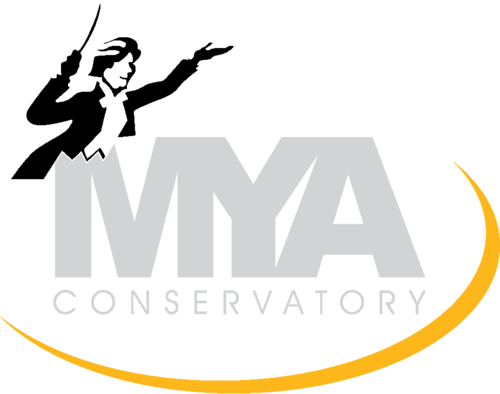Music Theory and Composition
Open your ears to deeper musical understanding and enhance your playing skills by working regularly with the building blocks of music!
MYAC’s Saturday and Sunday theory classes focus on active listening experiences as well as written concepts. Worksheets provide opportunities to practice concepts from class and to write your own music. During the school year classes meet weekly on Saturdays or Sundays on a schedule closely related to ensemble rehearsal times. For more information on what is covered at different levels see course descriptions below.
Any student age 7 and older who studies an instrument and possesses basic music reading knowledge may participate.
Parents and other MYAC friends are invited to participate as well.
Tuition is waived for all MYAC members. Initial class enrollment is based on a skills assessment quiz.
New theory students must take the assessment quiz to be placed in a class. Exceptions are made for younger students with no previous theory training (generally these students begin in the Musicianship I class.)
Students may only move into the next higher level class by passing a proficiency test (in both written and aural skills), regardless of whether they move into a higher level orchestra. Exceptions are made for students who have moved into Concert orchestra.
Students enrolled in MYAC ensembles DO NOT have to complete a separate registration for Music Theory.
Theory classes are also available for students who do not participate in an MYAC ensemble.
Class Placements for Music Theory:
New students may take a placement quiz to be placed in the appropriate theory class.
Or they may opt out of taking the quiz, but will be placed in the lowest level for their orchestra. No action is required, simply attend the first meeting of the appropriate class. Returning students may continue in the same class they were in the previous year without needing to take a placement quiz. It will be assumed that a student wishes to remain in the same theory class if they do not attempt to test up. Returning students may attempt to test into the next level course. However, if a student has taken MUS I or MUS II and moved into Concert Orchestra, they will automatically be placed into College Prep I.
Course Descriptions and Times
All Orchestral Theory classes are taught in the Kimee Room of the MYAC Center on Saturdays. Times are subject to change due to enrollment and student placement.
Musicianship I
Clef reading (treble, bass, alto)
Major Scales & Intervals
Sight singing diatonic scalar melodies
Dictation with diatonic scalar melodies
Simple duple/triple meter
Basic Phrasing
Simple composition with above concepts
Musicianship II
Review Musicianship I concepts
Minor Scales & Intervals
Sight singing with skips up to P5
Dictation with skips up to P5
Compound meter
Simple composition with above concepts
College Prep I
Review Musicianship II concepts
Scales, Tonality, Key, Modes
Intervals (Major, Minor, New: Diminished, Augmented)
Triads (Major, Minor, Diminished, Augmented)
Inversions (Intervals & Triads)
Seventh Chords
Ear training to be integrated for all of the above concepts
College Prep II
Review College Prep I concepts
Diatonic triads
Diatonic sevenths
Analyze simplified chorales
Functional harmony
Cadences and simple progressions in major and minor (e.g., I-V-I, I-IV-V-I)
Non-harmonic tones
Ear training to be integrated for all of the above concepts
Composition Class
Composition lessons are available on an individual basis. Please contact Nicholas McKee at nicholas@mya.org for more information.
Jazz Theory
Jazz Theory is offered on Sundays and is required for all members of Jazz Ensemble, Jazz Orchestra, and Big Band. Please view the Jazz Program page for more information.
